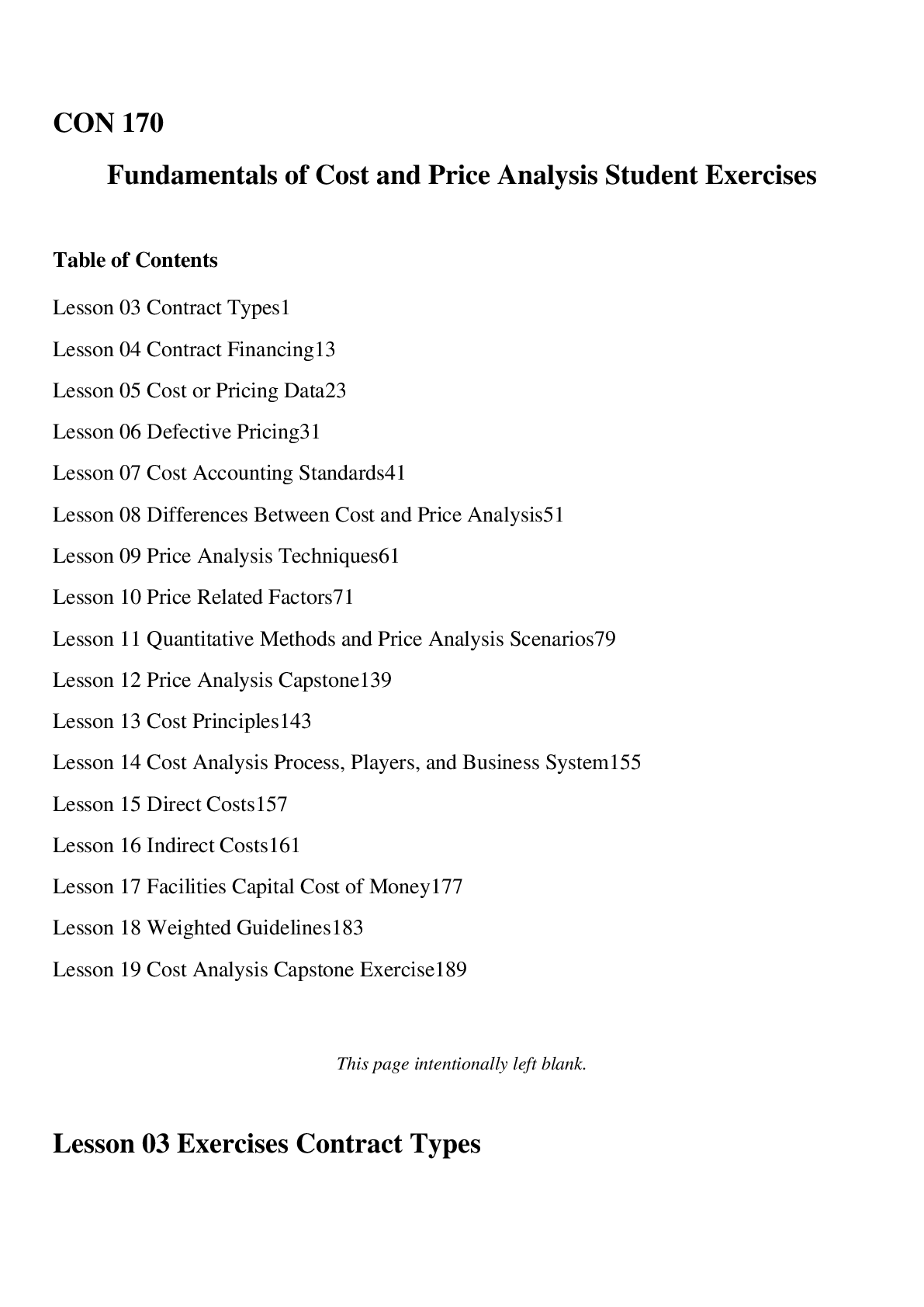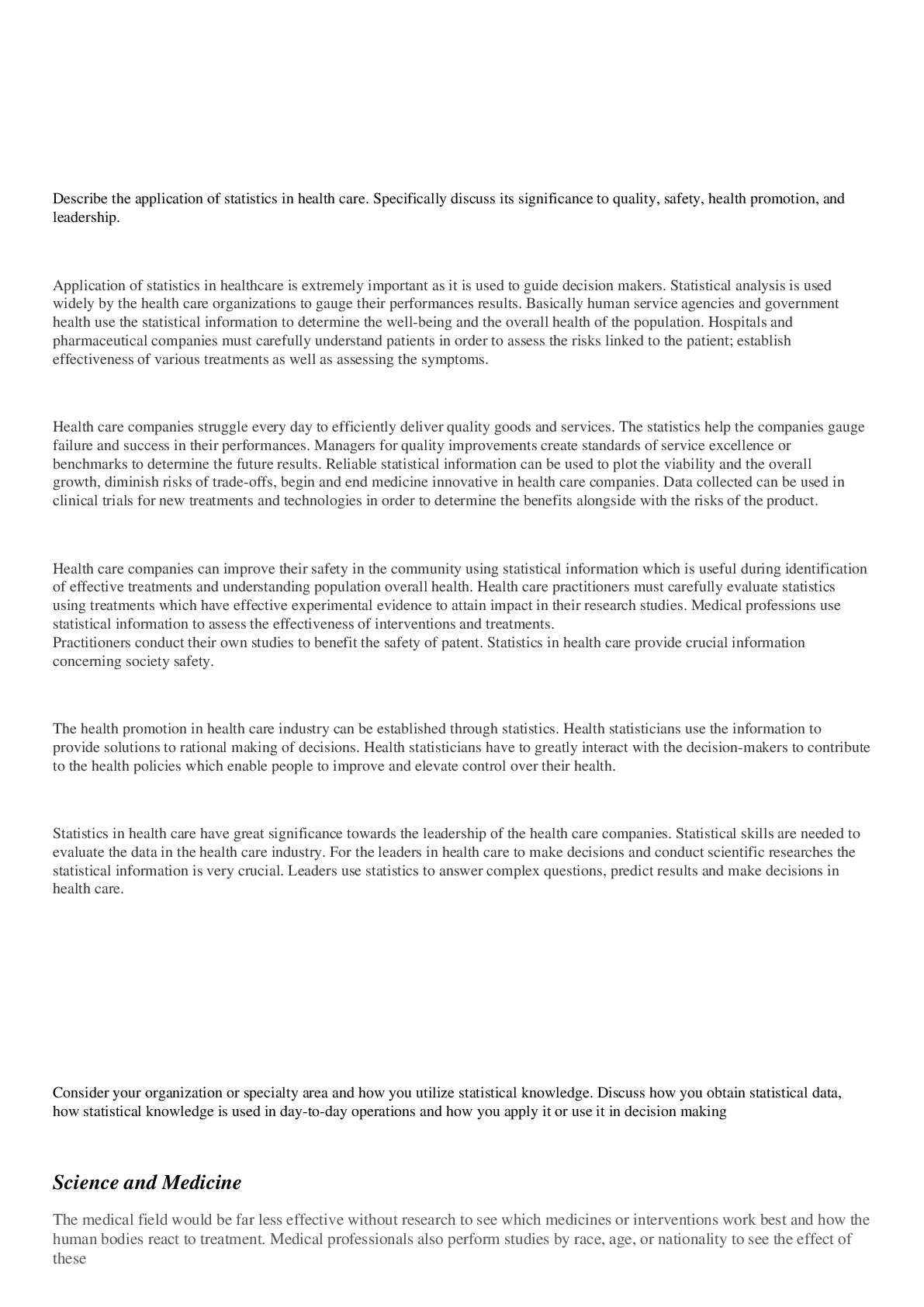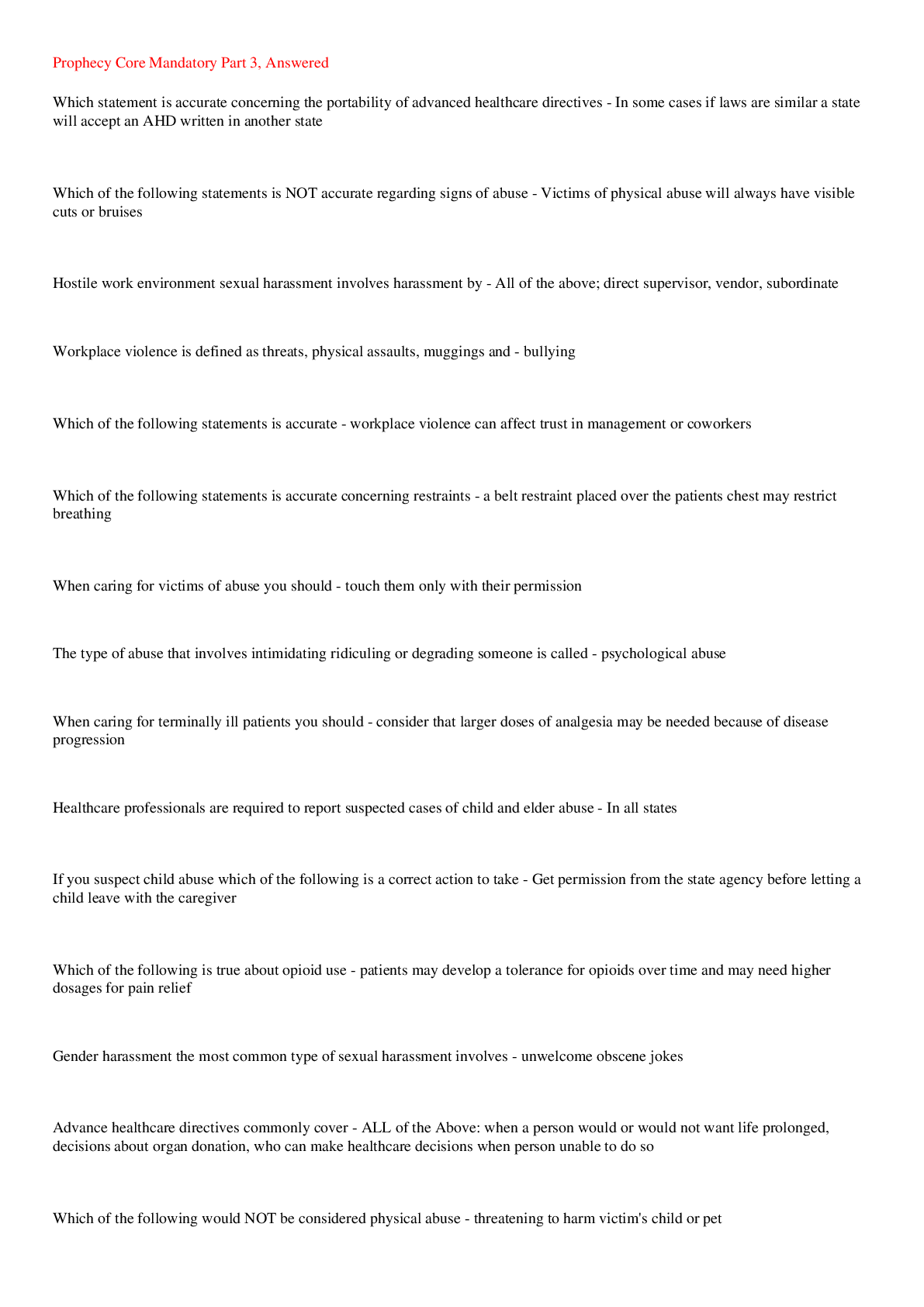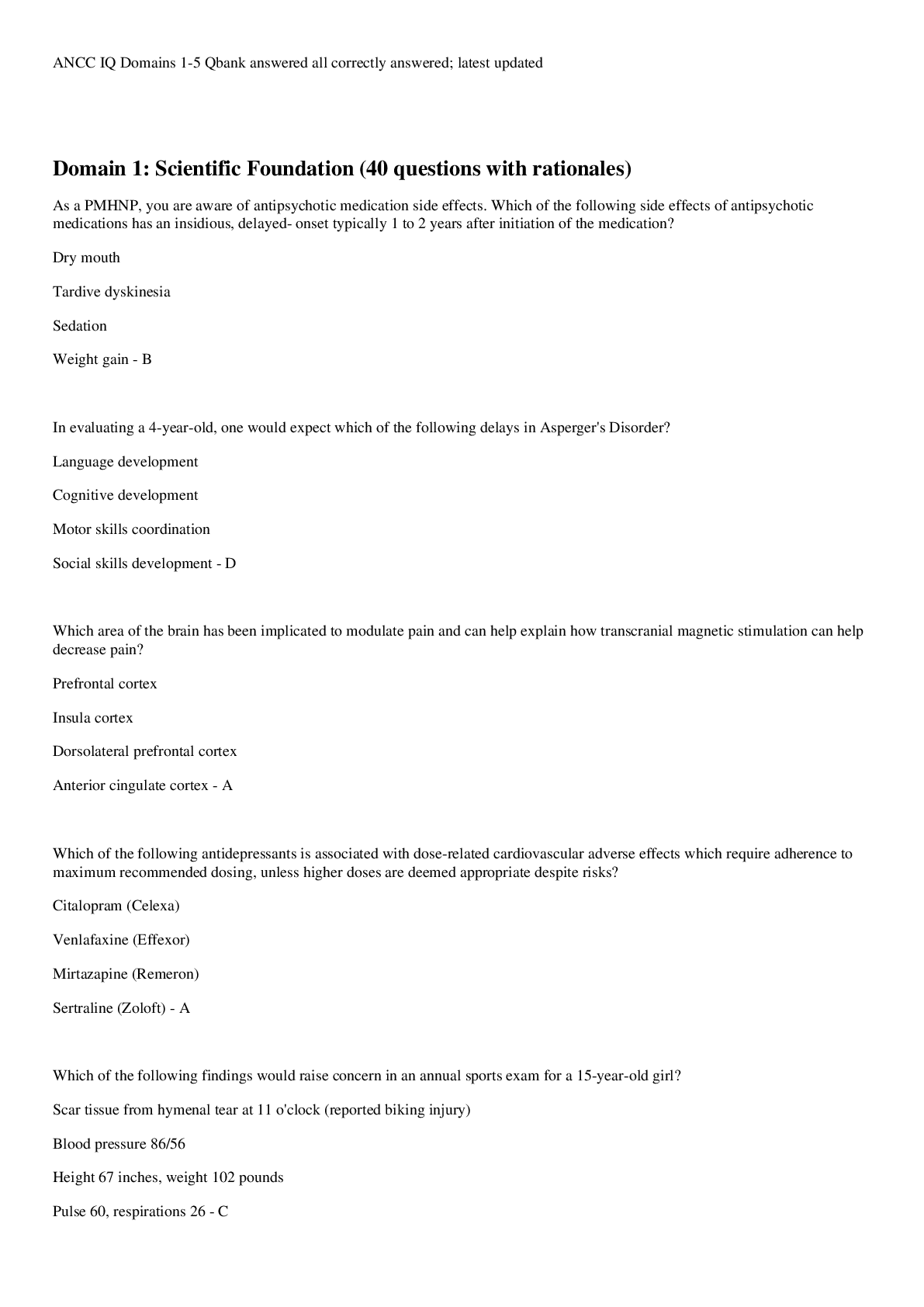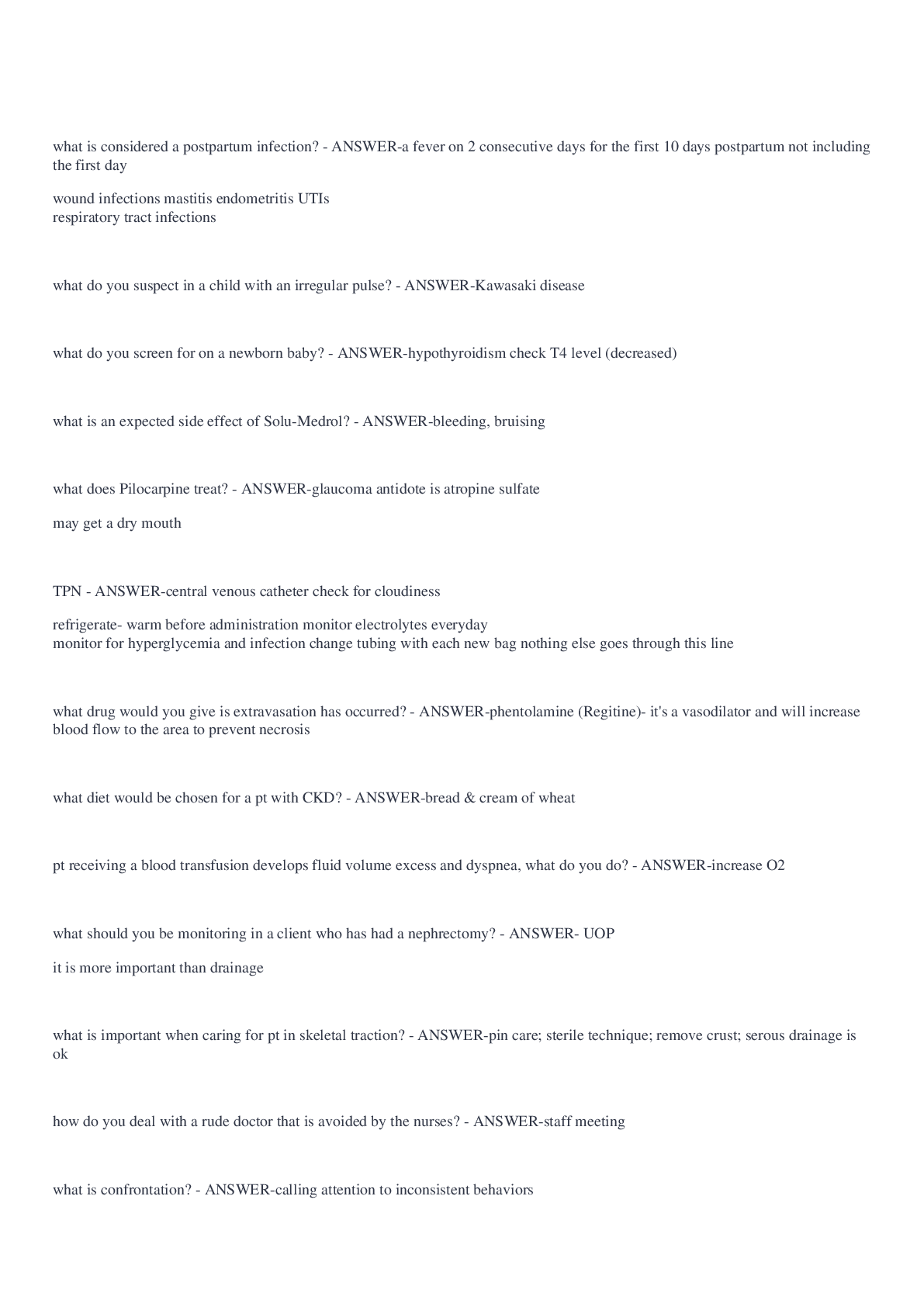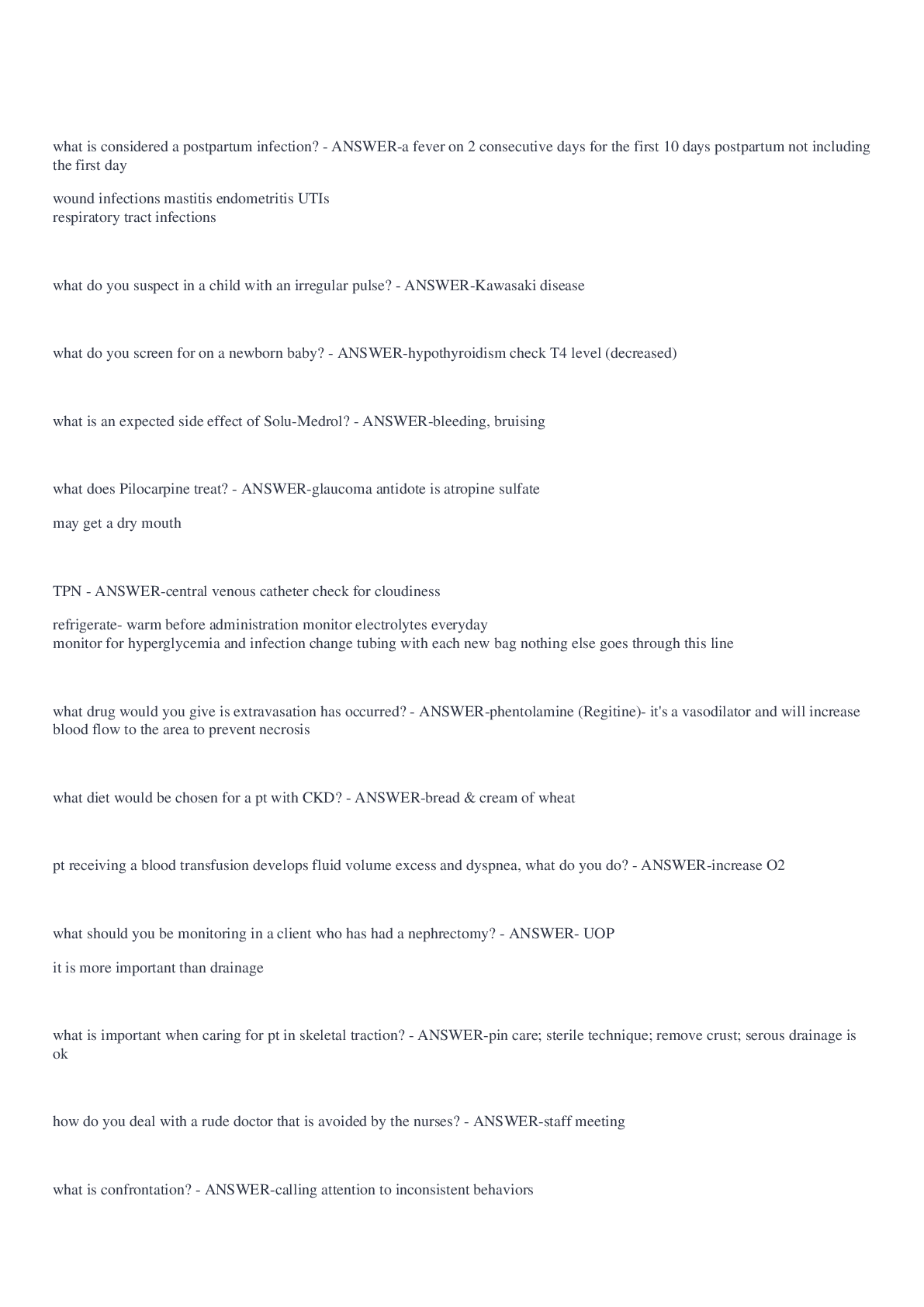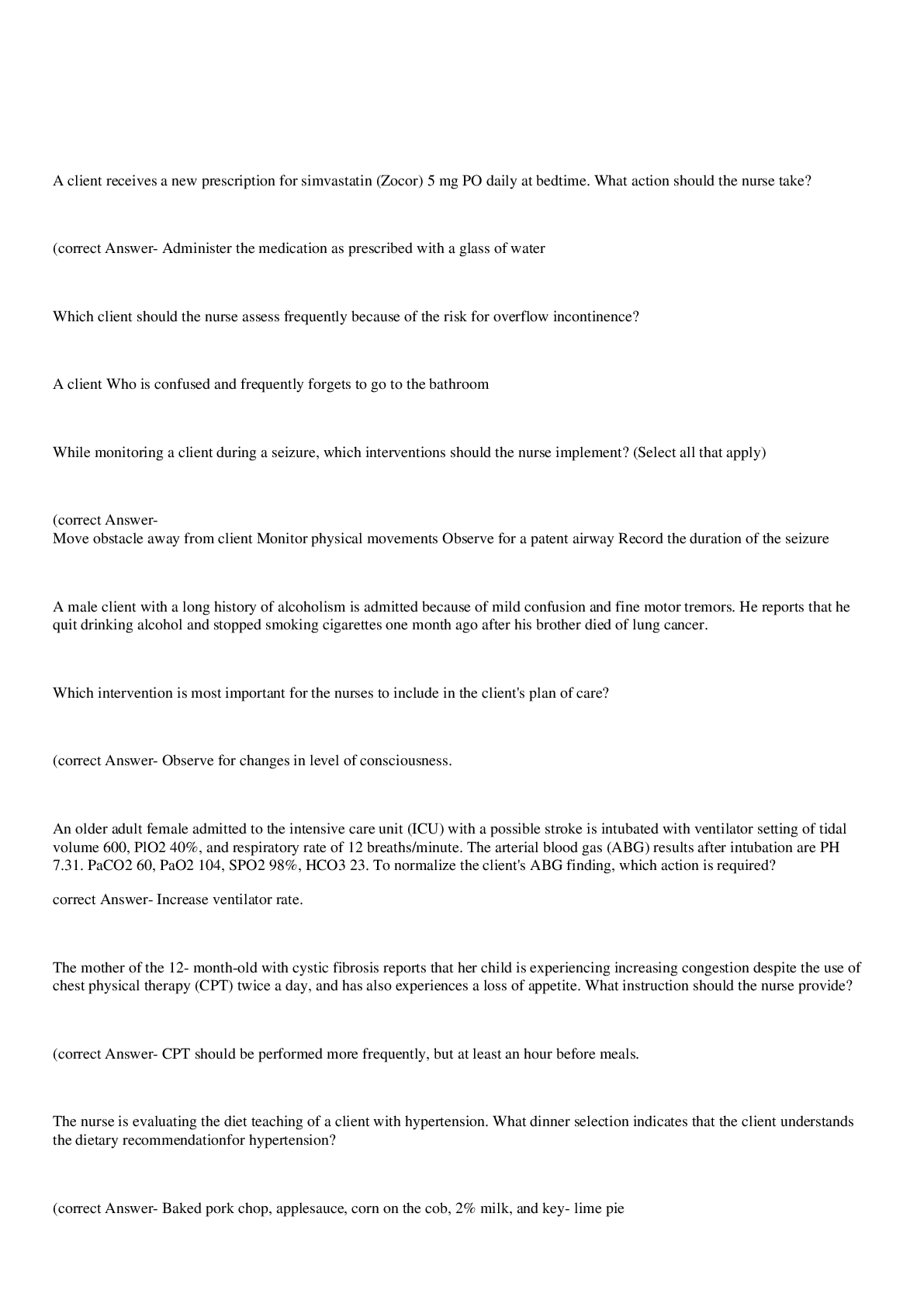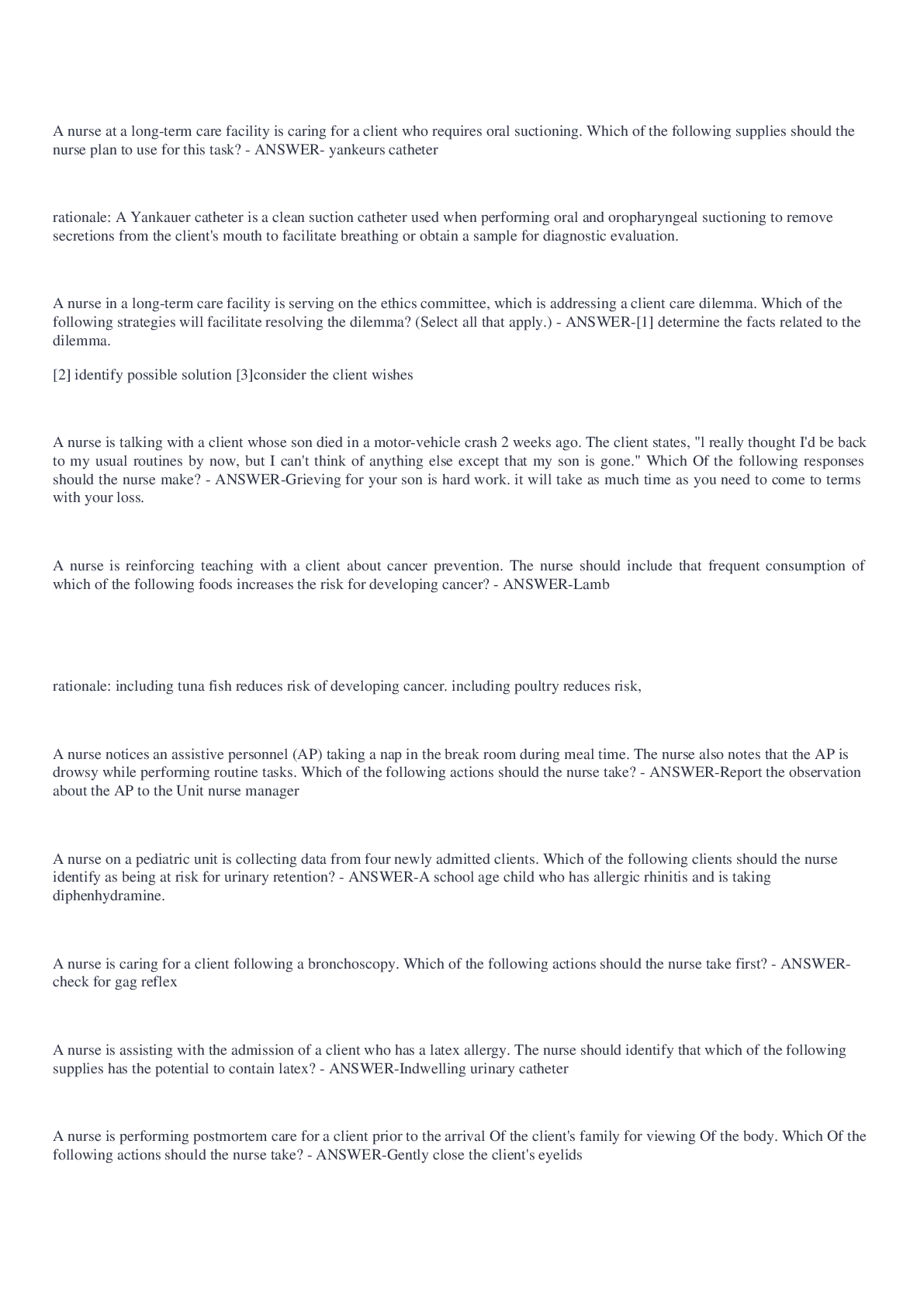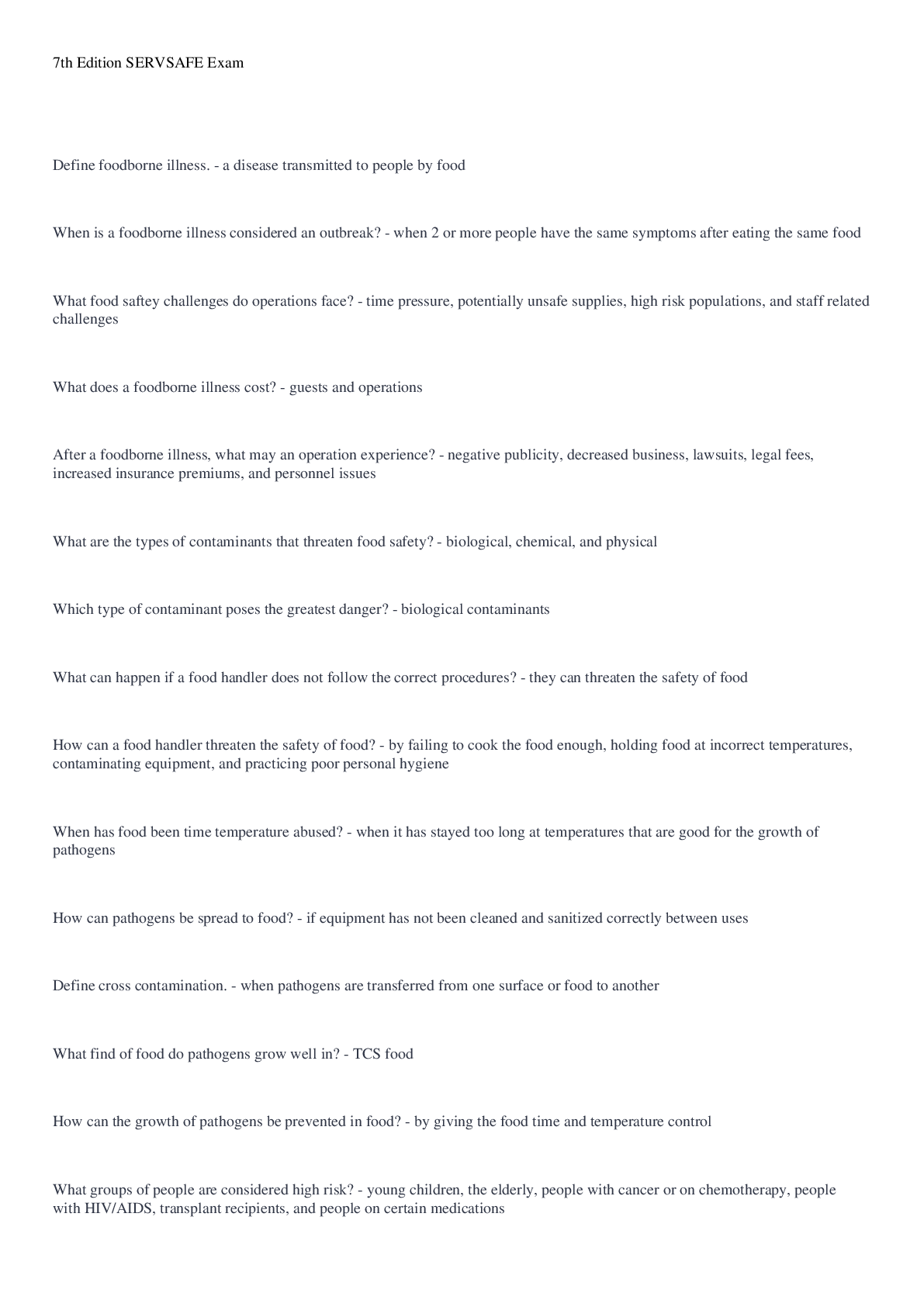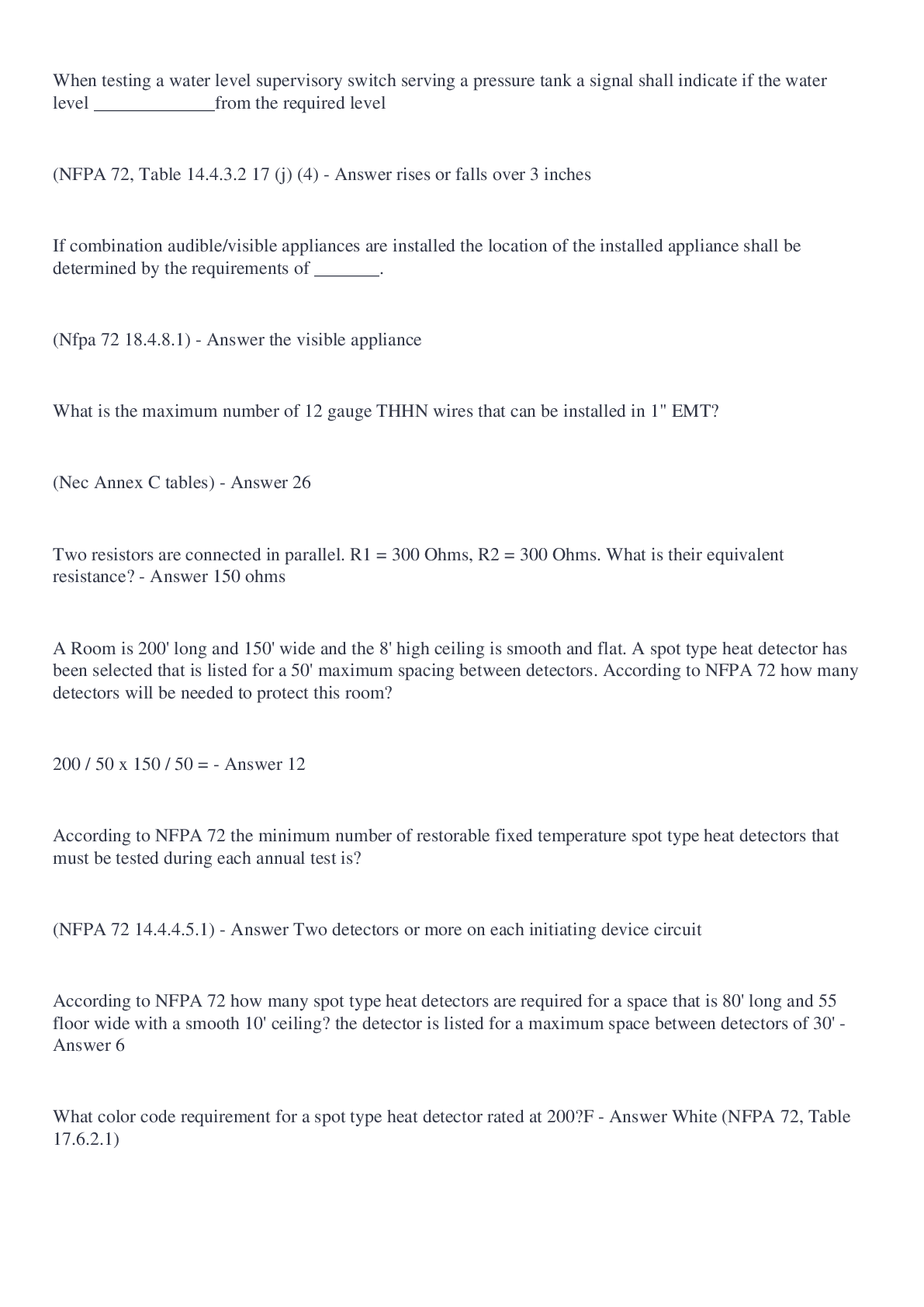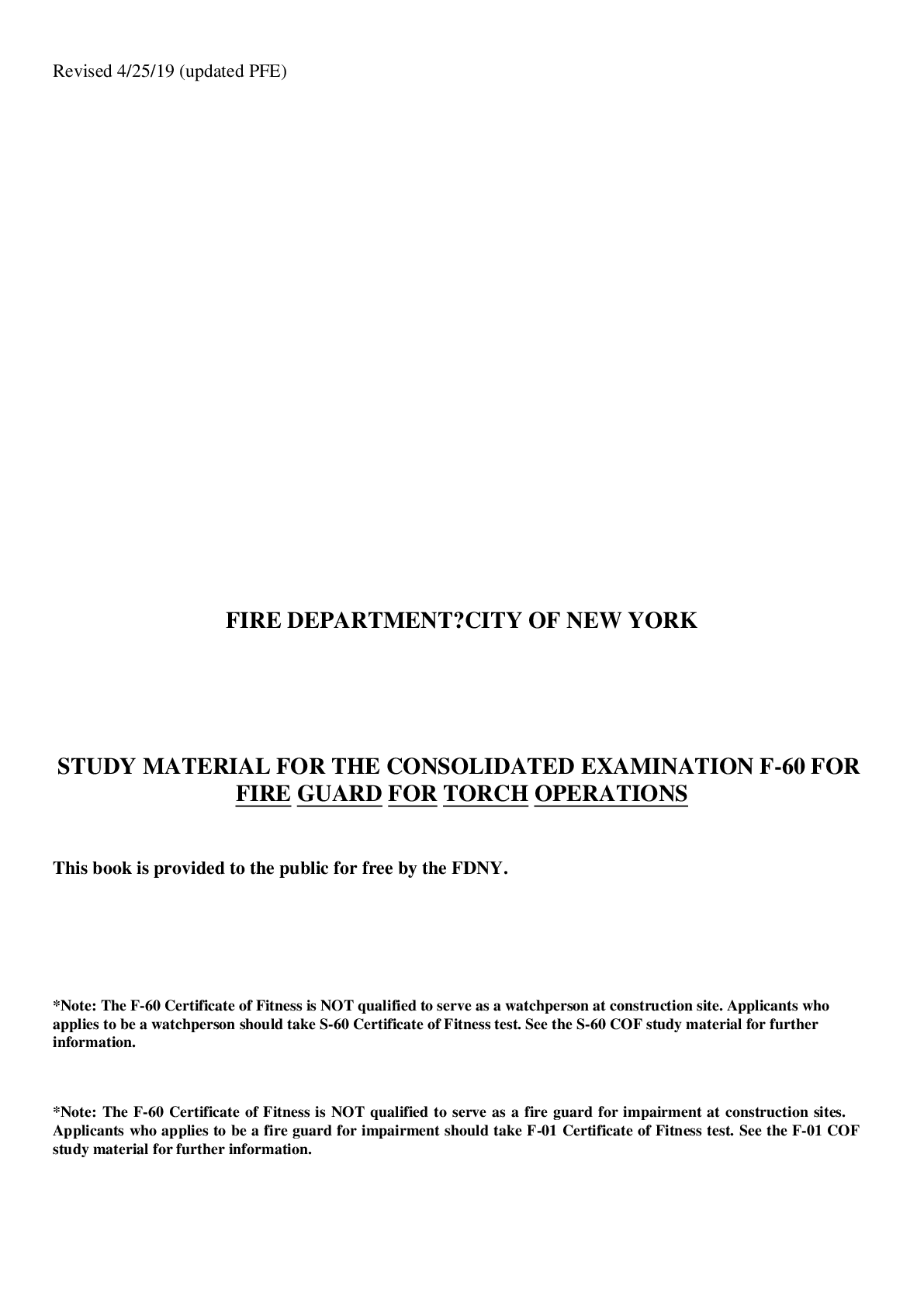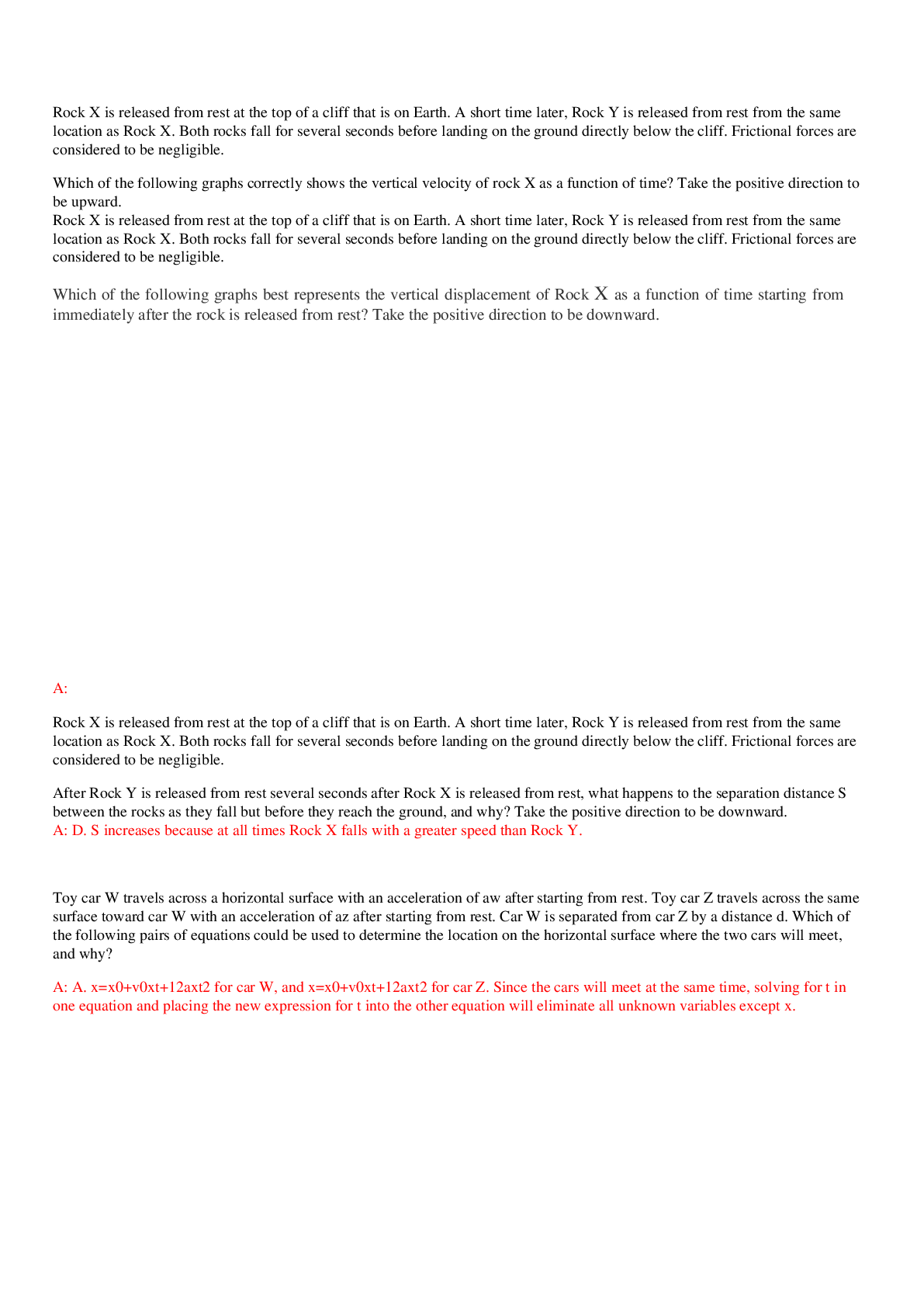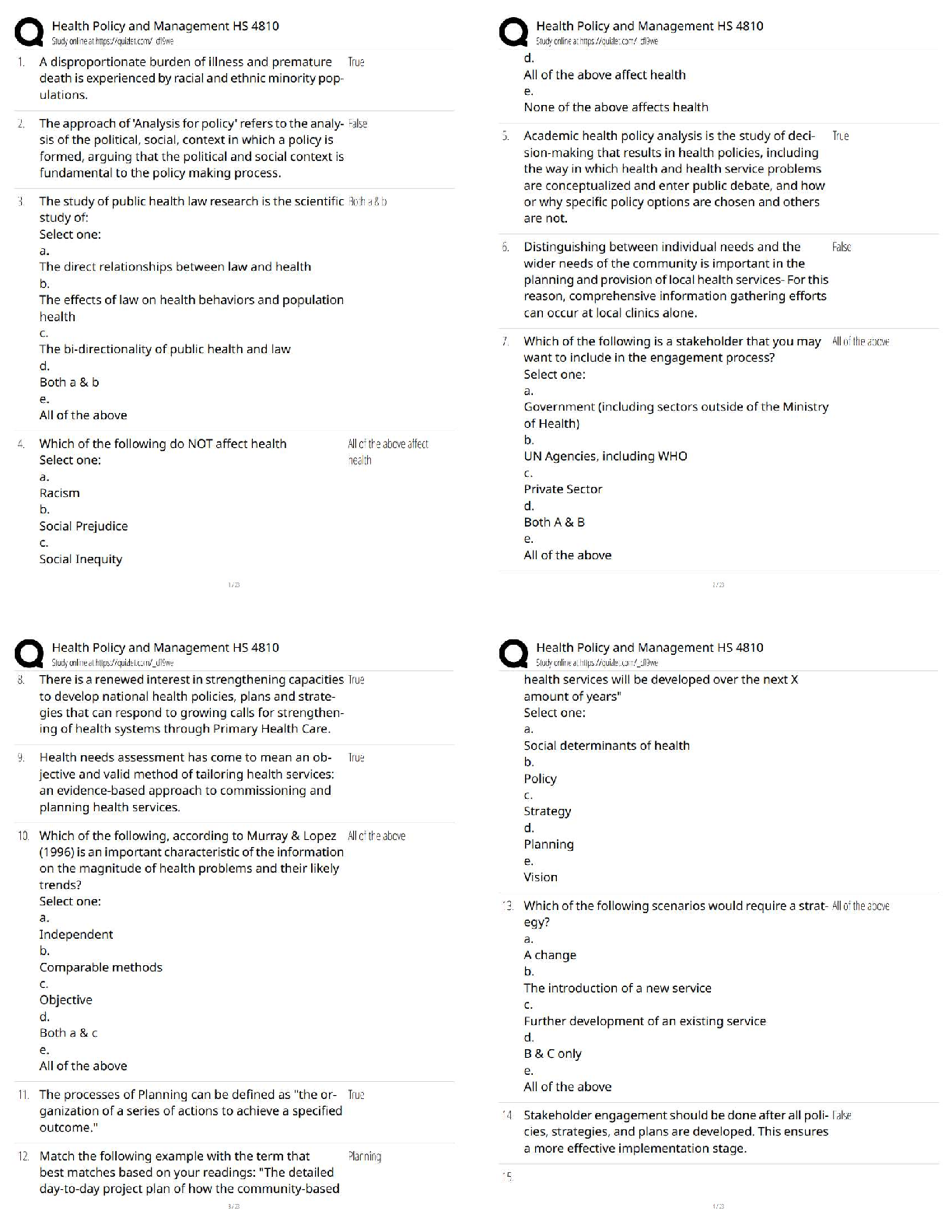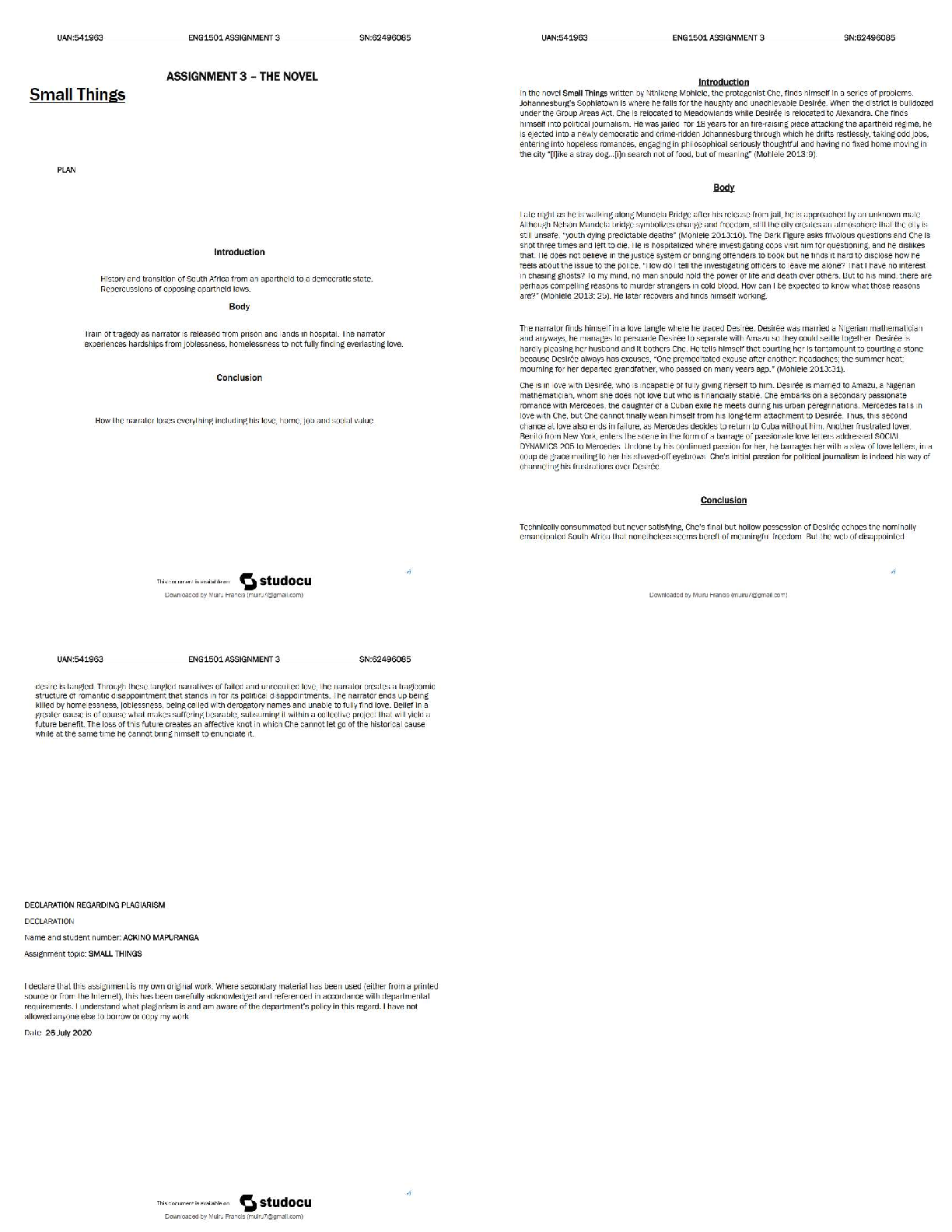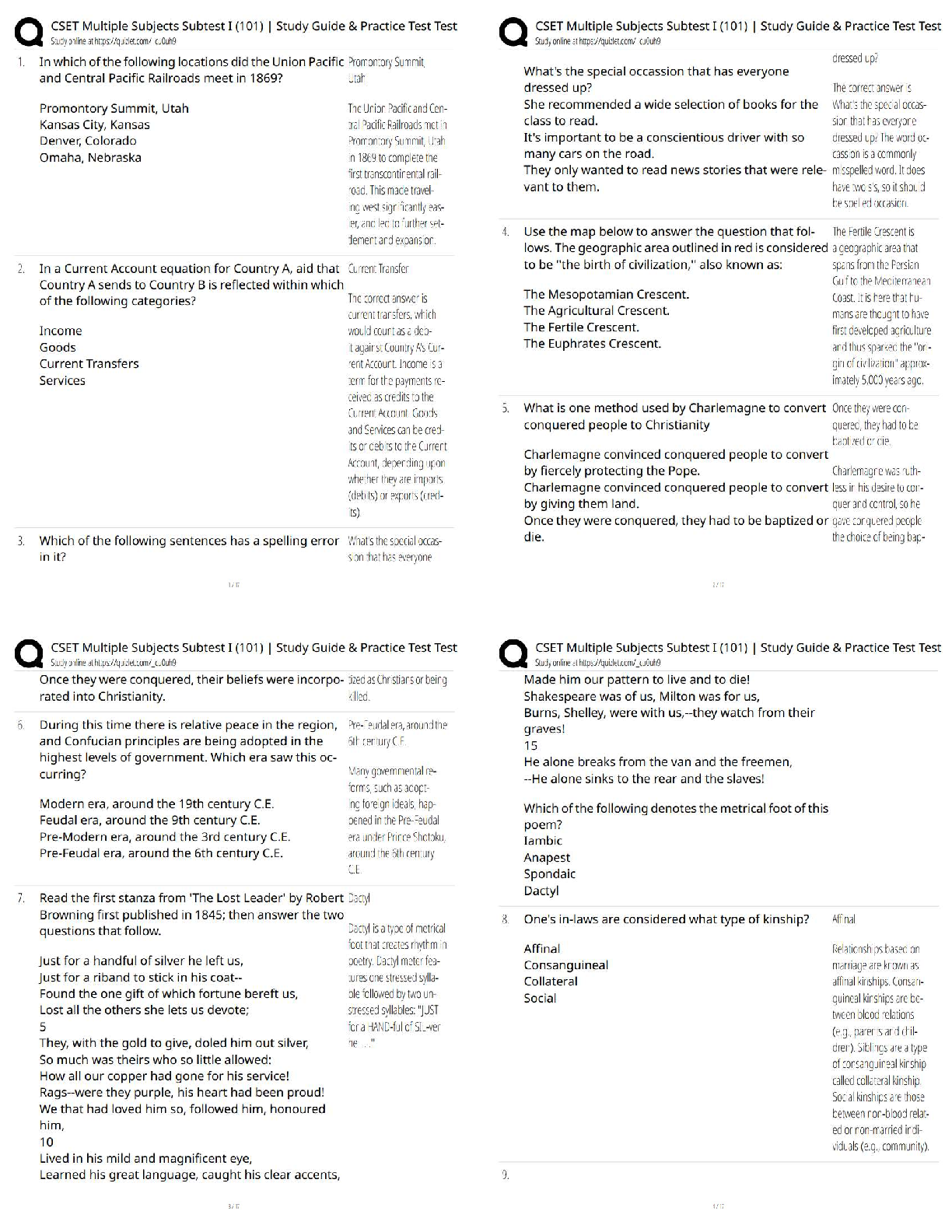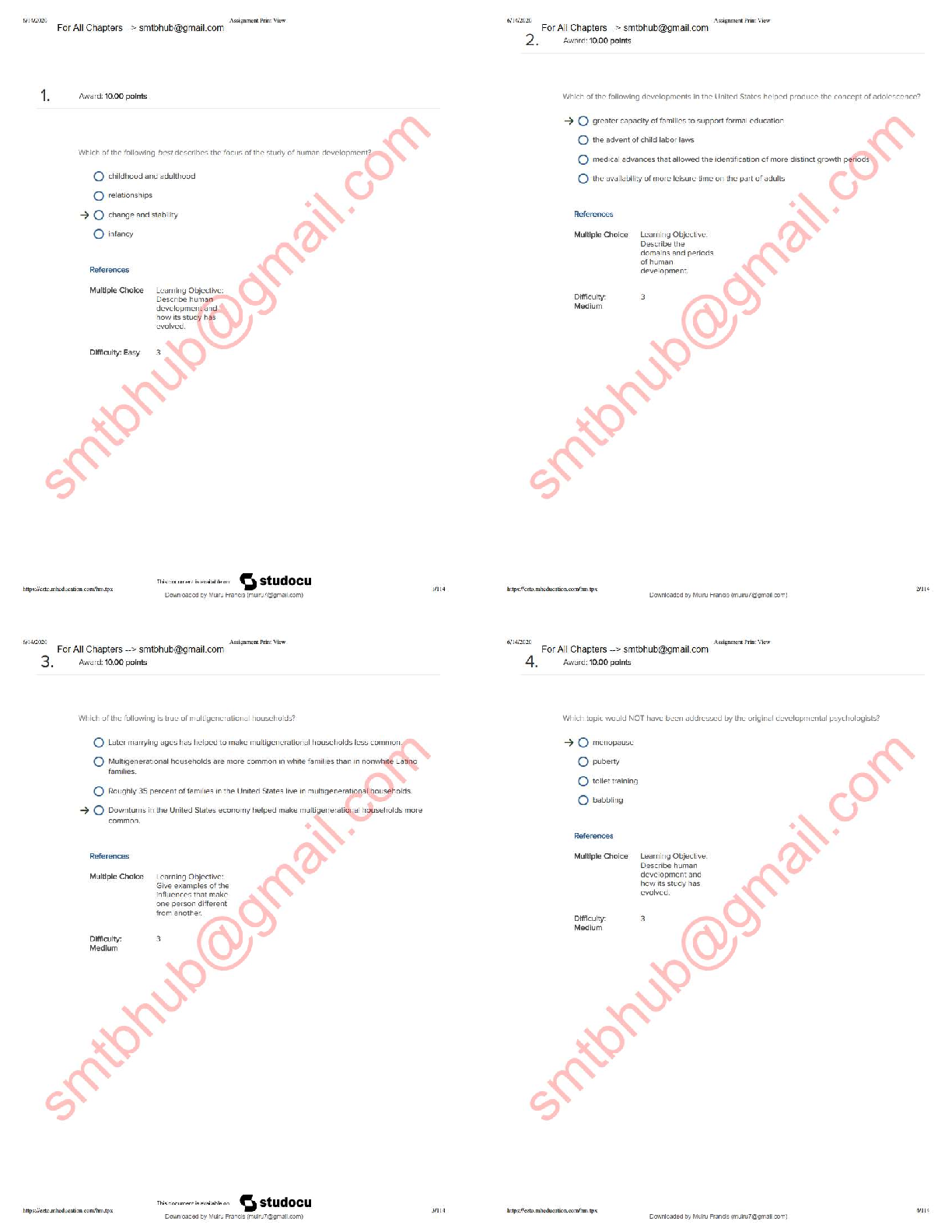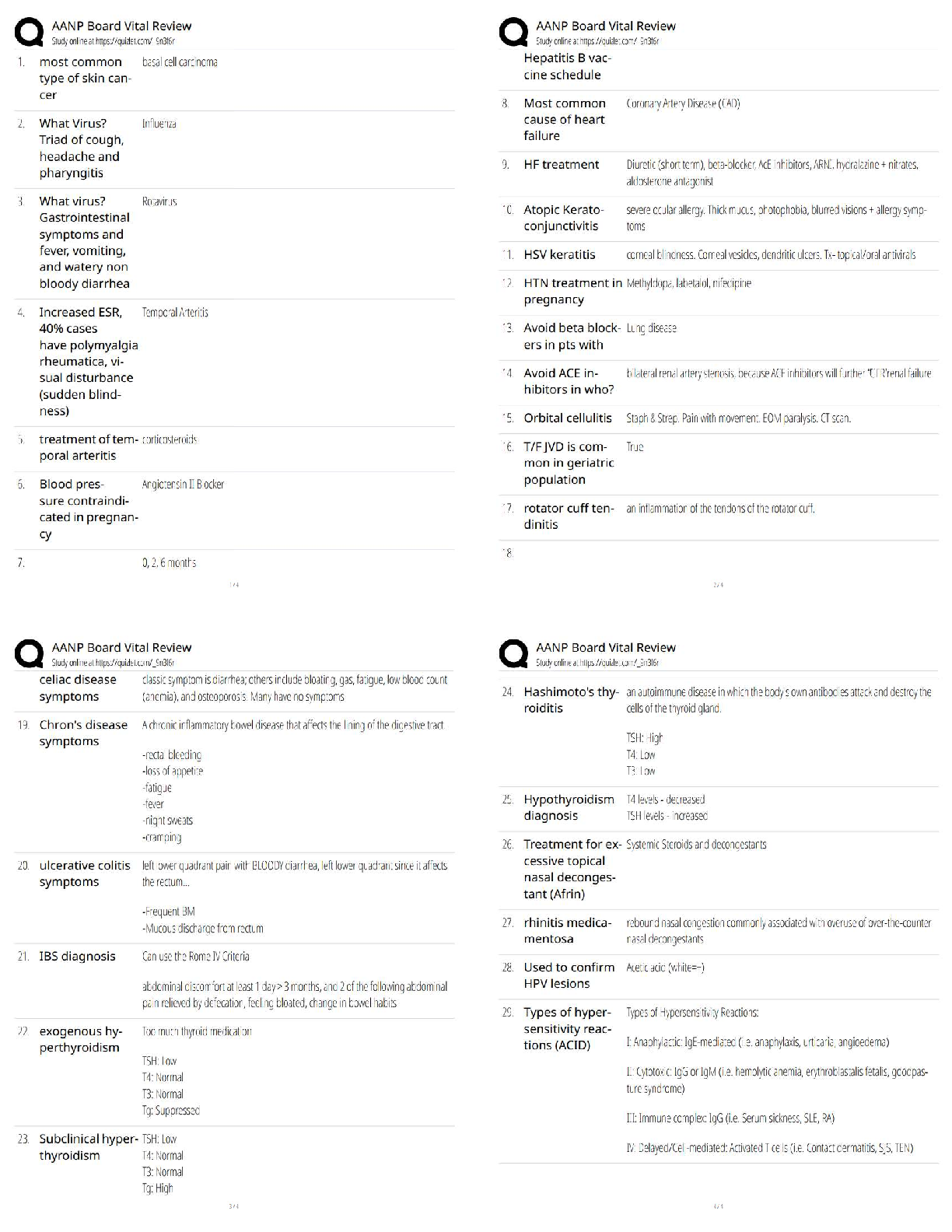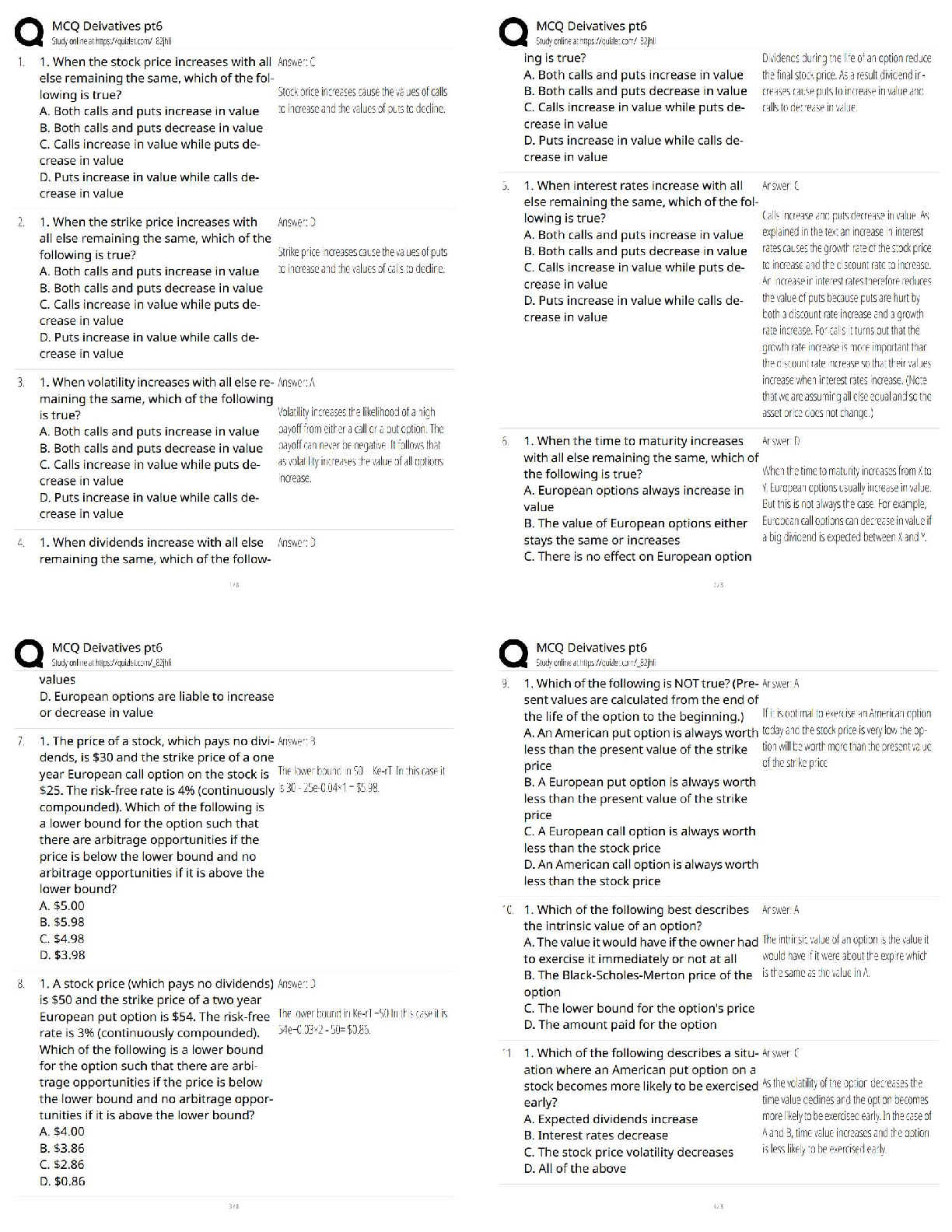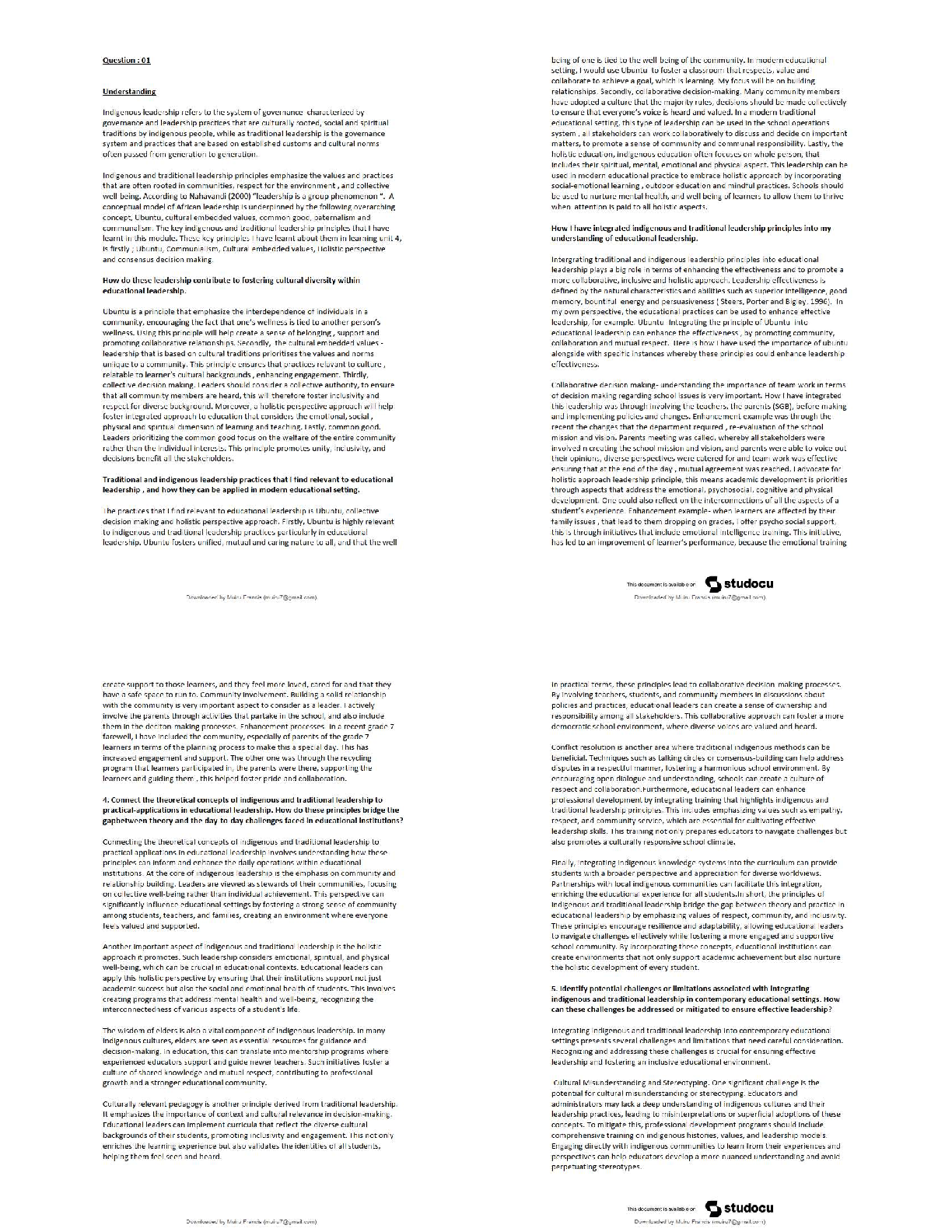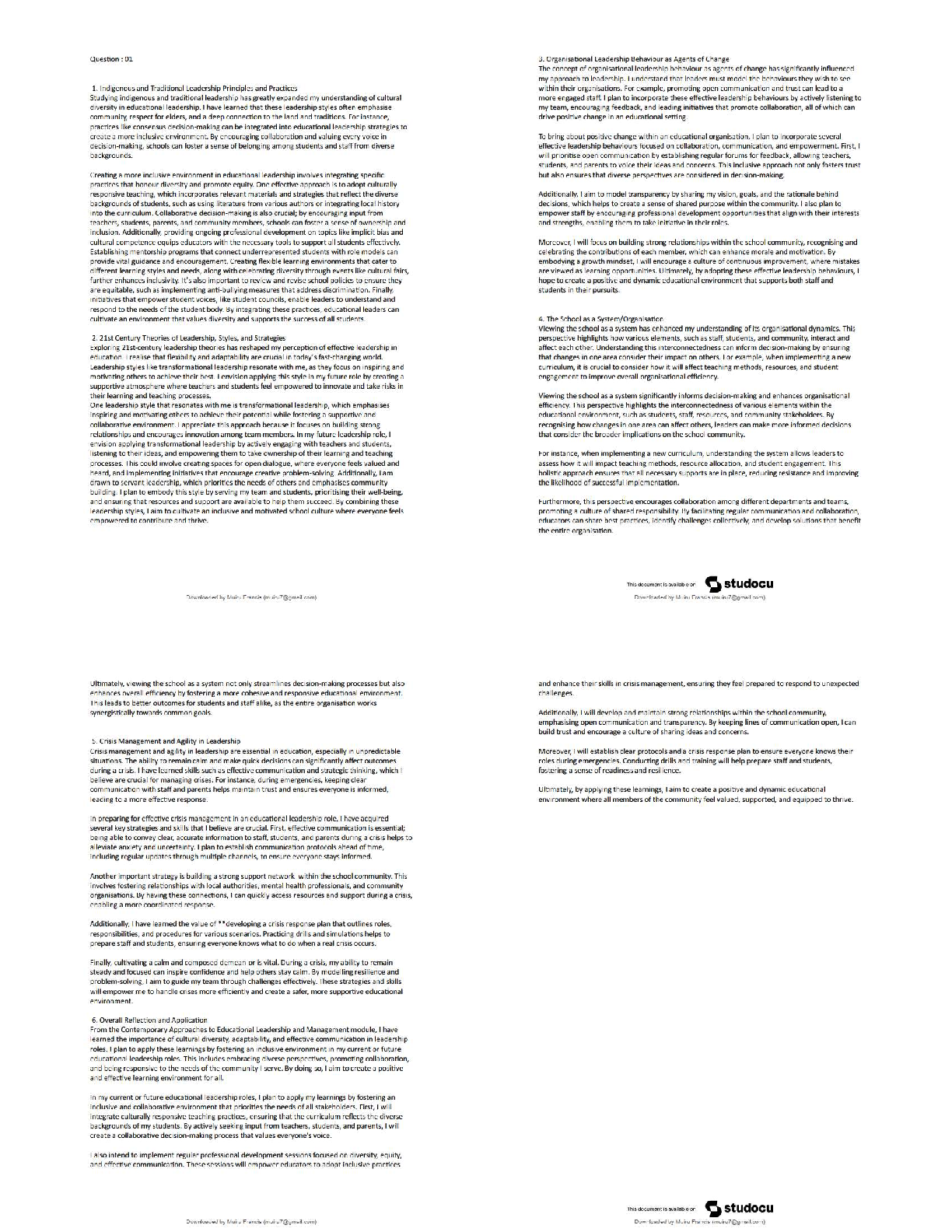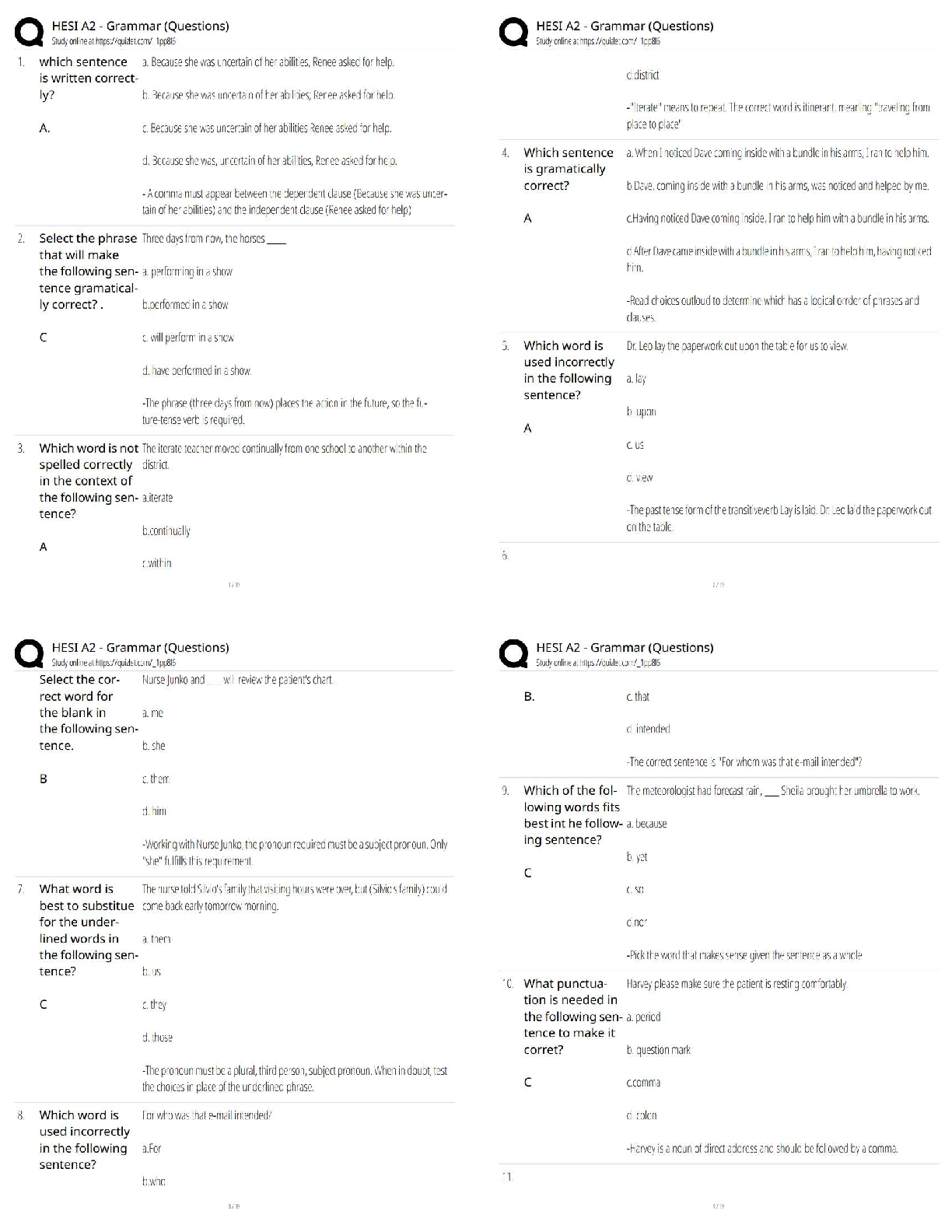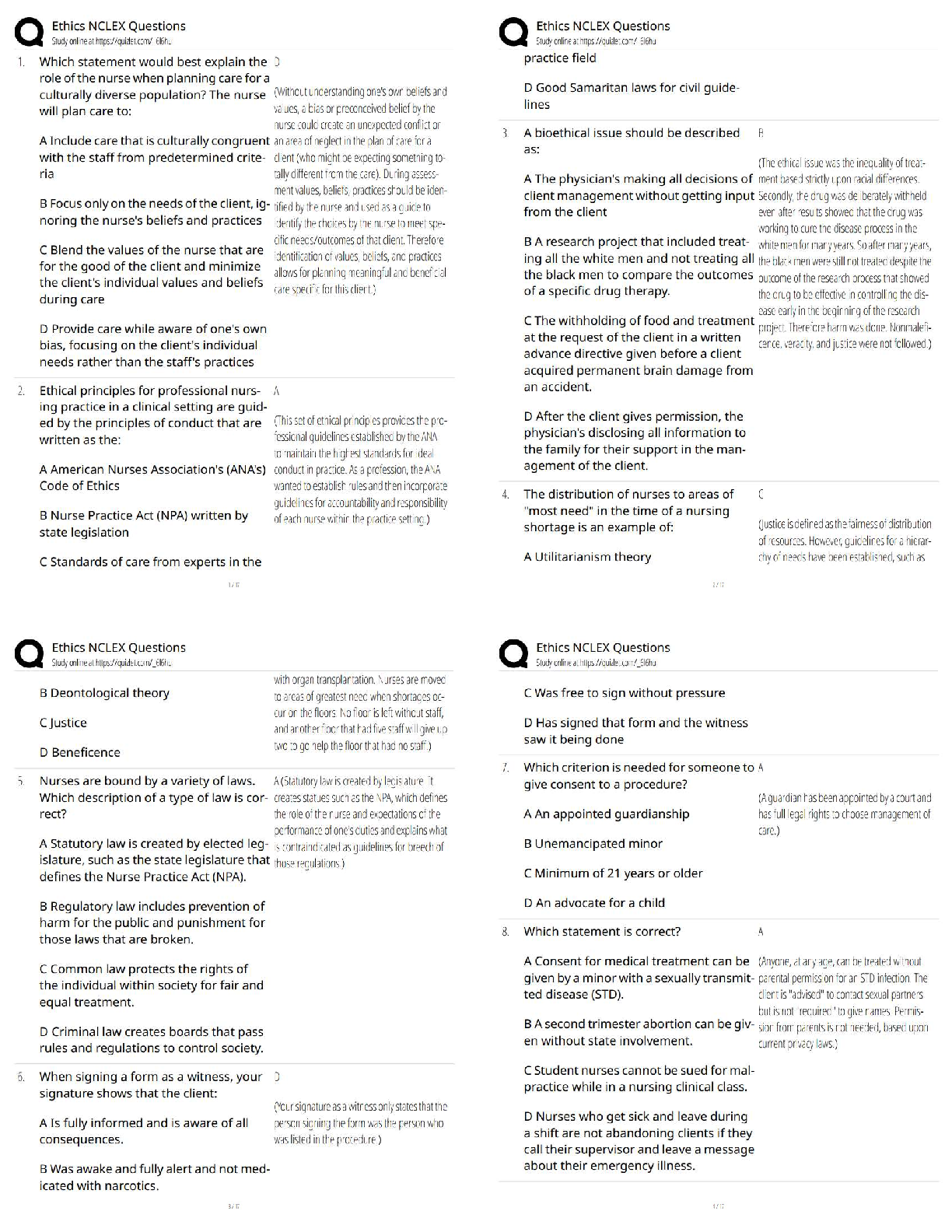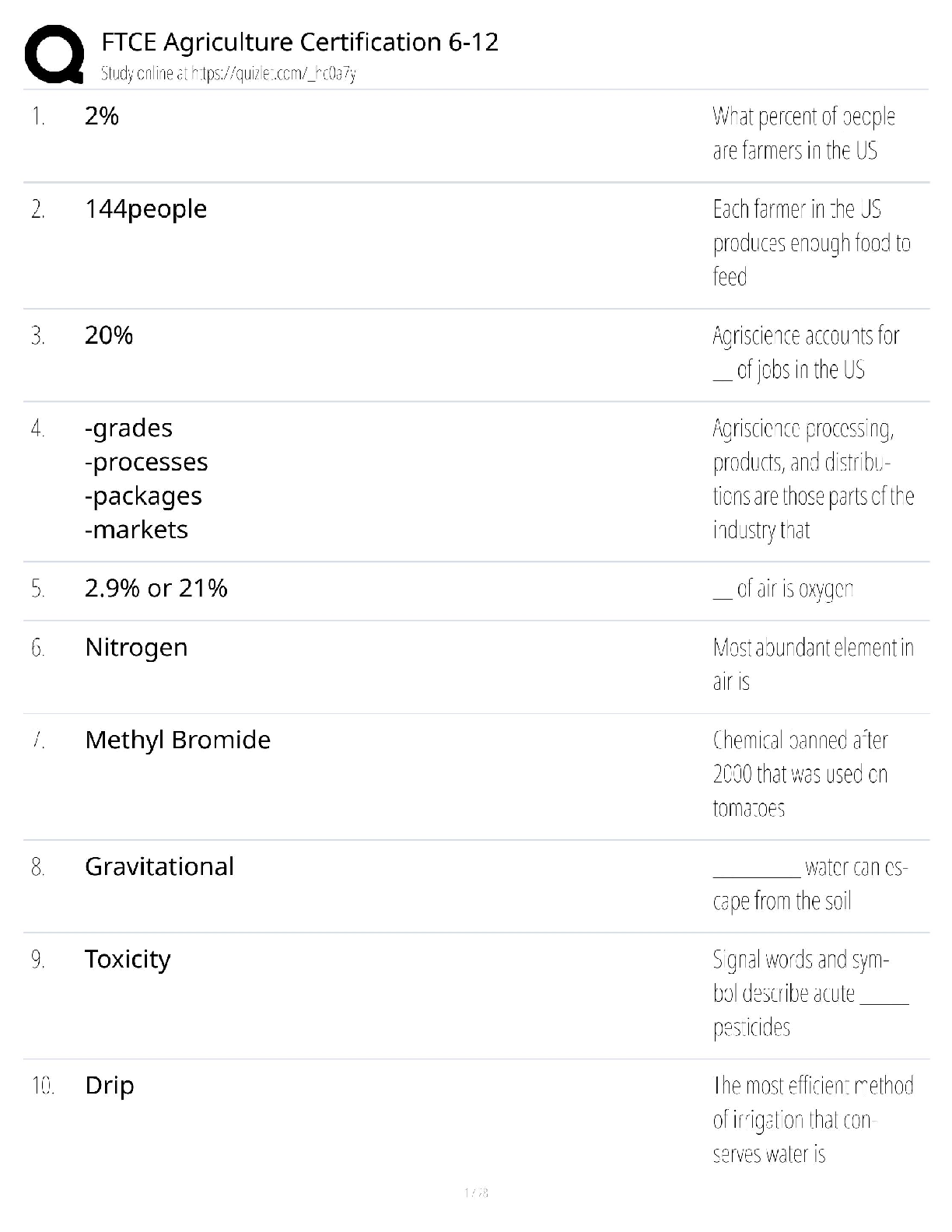Psychology > QUESTIONS and ANSWERS > PSYC-110N Week 8 Final Project: Psychology Yearbook (GRADED A) (All)
PSYC-110N Week 8 Final Project: Psychology Yearbook (GRADED A)
Document Content and Description Below
PSYCHOLOGY YEARBOOK Introduc tion • I've mastered the fundamentals of psychology during the last eight weeks. I know a lot more about behavior and mental illnesses now than I did before this class. ... This presentation is an overview of everything I've learned during the last few weeks. I used what I considered to be the most important for each issue. My presentation demonstrates what I learned and retained from each course outcome. 1900s: Human Behavior • Outcome 1: Assessment of theoretical perspectives on human behavior, including physiological causes for behavioral changes. • In the 1920s, John B. Watson was the first major psychologist to use the behavioral approach. (Feldman, 2019) • Humans might be comprehended by monitoring their conduct, they believed. • Watson thought that a person's surroundings might bring out any type of conduct. 1900s: Consciousness • Outcome 2: Examine the sensation and perception processes, as well as the factors that influence consciousness. • Dreams were used by Sigmund Fraud to gain insight into the unconscious mind. (Feldman, 2019) • Fraud wrote a book about dream interpretation. • In his book, Fraud discusses how dreams can be interpreted to understand how the unconscious mind perceives the world and what is being replayed. (Fraud, 1900) 2000s: Human Behavior • Many things, such as terror attacks or mass shootings, are investigated based on one's behavior. • Why people do what they do is typically considered as a case of nature vs. nurture. • People's behavior is also influenced by where they are from in the globe and what they are taught from an early age. 2000s: Consciousness • Dreams are used to gain insight into a person's subconscious mind and what is going on inwardly. • Our subconscious mind can reveal a lot about how we feel and recall things. • The book by Sigmund Freud aids in deciphering what we don't grasp about the meaning of our dreams. 1900s: Stress • Examine the physiological and psychological effects of stress, as well as various stress management approaches. • Soldiers began to develop an illness known as shell shock during the world wars. • Because of the stress produced by the conflict, the soldiers returned home unable to operate. (Jones, et al., 2012) • Shell shock not only caused bodily problems as a result of the stress, but it also had a psychological influence on them once they returned home. 2000s: Stress • Shell shock is now termed as post-traumatic stress disorder (PTSD) • Between 10% and 18% of soldiers suffer from PTSD, and the US spends $3 million to assist treat them. 2019 (Feldman) • PTSD is becoming more common among first responders and others who have witnessed terror incidents. • Because the person is unable to cope with the stress created by the occurrence, PTSD might lead to suicide. • Not only does it influence the mind, but it also affects the body, causing loss of appetite and insomnia. 1900s: Learning & Memory • Outcome 4: Demonstrate learning and memory models. • A Russian physiologist, Ivan Pavlov, did a study employing dogs to investigate stomach acid secretion and salvation (Feldman, 2019) • He discovered that dogs do not respond to hunger, but rather to learned behaviors about when they will be fed. • This experiment demonstrated how humans and animals are conditioned into habits by continuously repeating them. 2000s: Learning & Memory • What Pavlov discovered has been used to learn about human memory and behaviors. • Everyone nowadays lives in a revolving door of habits that they engage in every day fr [Show More]
Last updated: 2 years ago
Preview 1 out of 8 pages

Buy this document to get the full access instantly
Instant Download Access after purchase
Buy NowInstant download
We Accept:

Reviews( 0 )
$9.00
Can't find what you want? Try our AI powered Search
Document information
Connected school, study & course
About the document
Uploaded On
Jan 24, 2023
Number of pages
8
Written in
All
Additional information
This document has been written for:
Uploaded
Jan 24, 2023
Downloads
0
Views
87

